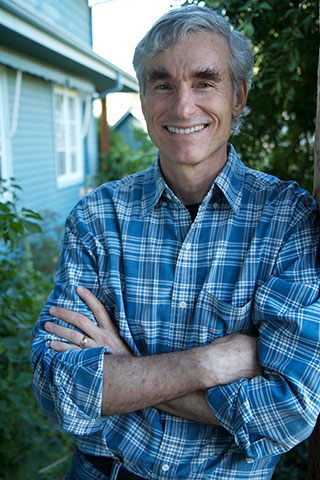BLOG
The Latest Barron Prize NewsGratitude All Around
It seems a fitting time to reprint the following article, published in The Horn Book back in 2015 (thus the mention of the Prize as a $5,000 vs. $10,000 award). In it, T. A. shares some of the ideals that lie at the heart of both his writing and the Barron Prize. I’m so grateful for the chance to try to live out those ideals in my daily work.
By Roger Sutton
Author T. A. Barron instituted the Gloria Barron Prize for Young Heroes in 2000. Named for the author’s mother, the Prize is given annually to fifteen young people “who have made a significant positive difference to people and/or our environment.” Each winner receives $5,000 toward his or her work or higher education.
Barron’s latest fantasy novel, Atlantis in Peril, will be published in May by Philomel Books, and look for his thoughts about his main man Merlin in the forthcoming May Horn Book Magazine, a special issue on the theme of Transformation. Nominations for the 2015 Barron Prize can be made through the website linked above, but the deadline is April 15th so burn rubber, jk.
This is the first in a series of interviews with children’s book people about what else they do with their time.

TAB: The quality and diversity of these kids has always been extraordinary – they blow my mind every single year. But there have been dramatic shifts in what kinds of activism motivate them. For example, there’s been a big increase in young people helping other people and the environment at the same time – such as one recent winner who invented solar lanterns to replace dangerous and polluting kerosene or dung ones in developing countries. Another change is that nearly all our nominees these days have created their own activism websites and have a real social media presence, which definitely wasn’t the case when we started!
2. RS: Where do you see the intersection between your work as a novelist and as a conservationist?
TAB: Both are about young people – their struggles, ideals, and surprising power to change the world. Every day, I’m worried about the terrible planetary mess we are handing to our children. Yet every day, I’m amazed by the honesty, freshness, energy, dreams, humor, and courage of young people. So in my writing, I try to authentically earn the idea that every kid, of any description, has a special magic down inside – magic that could change the world. Add to that “hero’s journey” core how much I like to weave ecological ideas into my books…and you have the two themes that flow through all my stories.
Similarly, in my conservation work, I try to share stories of real people who have made a difference to creating a more healthy environment – people like Jane Goodall (visionary), John Muir (activist), Rachel Carson (writer), and Johnny Appleseed (tree planter). We actually do have the power to give Mother Nature the space and flexibility she needs to survive – but we have to believe that before we can do it. The stories we tell young people – the seeds we plant metaphorically as well as physically – can help us get there.
3. RS: Could you describe one of the most surprising or inventive projects you’ve seen submitted for this prize?
TAB: I’m still waiting and hoping for the bright young kid out there who will invent a way for me to write books faster (as a community service, of course)! Alas, that isn’t going to happen. Some of my most favorite recent projects are: (1) Waste No Food, linking food donors with charities that feed the hungry, thus helping people and keeping food waste out of landfills. (2) Literacy for Little Ones, providing new books and early literacy information to nearly 10,000 families with newborn babies. (3) Project TGIF (Turn Grease Into Fuel), collecting waste cooking oil from residents and restaurants and refining it into biodiesel to help New England families with emergency heating needs.
4. RS: What do you think is the key to growing a lifelong idealist?
TAB: Here’s what I hope to convey to any kid from any background: See your life as a story – a story of which YOU are the author. So make it the very best story you can! Tell it with courage; tell it with passion. And also find a way to have a chapter or two where your dreams for how to make the world a better place are made real by the small, everyday things you do in your life – as well as the broader causes you support.
5. RS: If I told you I wanted to save the world, what would you give me to read first?
TAB: I’d give you three books: (1) Seedfolks by Paul Fleischman (on the power of every person to make a difference). (2) A Wrinkle in Time by Madeleine L’Engle (on the power of love). And (3) The Hero’s Trail (the new 2015 edition) by T. A. Barron. (I know it’s shameless of me to include that last title…but this new edition is so packed with inspiring stories of real young people who have shown amazing courage and compassion that I just can’t resist.)
